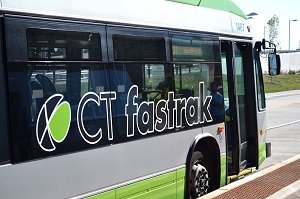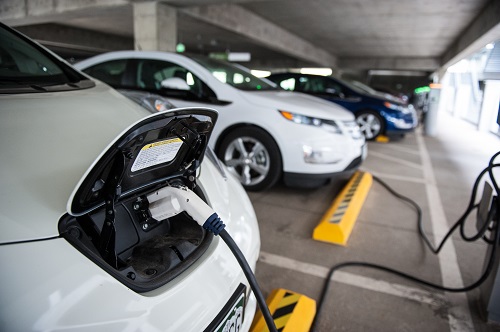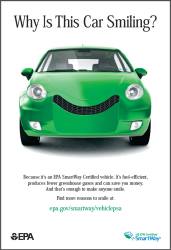Reducing Your Personal Transportation Emissions
The majority of transportation energy consumed comes from passenger cars and light trucks. Therefore, reducing your personal transportation emissions can have large impacts on total transportation emissions in Connecticut. Plus, reducing transportation emissions can often save you money, and can get you in shape (depending on the mode of travel you use)!



Reduce Your Vehicle Miles Driven - Consider multiple ways to get around.
The less you drive, the less fuel you use, the fewer transportation emissions you generate. There are many alternatives to driving in a single occupancy vehicle. Consider planning and combining your vehicle trips to reduce your vehicle miles traveled (VMT) and maximize the efficiency of your vehicle. Using public transit, carpools/vanpools, telecommuting, and biking/walking are good alternatives to driving alone - whether to work, to the gym, to the store, or anywhere you need to be. The links below provide information on commuting options in CT and identify different ways you can get around.
- CT public transit, find transit services in your town and region.
- CTrides is a free one-stop-shop for planning your daily commute!
- CTTransit is the CT DOT-owned bus service - find schedules, fares, and other information.
- CTfastrak is a bus rapid transit system that links New Britain, Hartford, and surrounding communities. The busway will provide a safe, clean, and efficient alternative to traveling by passenger vehicle in the region.
- Bike Walk Connecticut is a non-profit organization that advocates for cyclists and pedestrians across the state.
What You Drive - vehicle fuel efficiency & the carbon content of fuel
Consider purchasing a high efficiency or alternative fuel vehicle. You can reduce your carbon emissions and save money at the pump. For example, when considering the projected costs of fuel, choosing a vehicle that gets 30 mpg rather than 25 mpg saves a consumer $4,000 over the life of the vehicle. Consumers today have many more options when it comes to purchasing these types of vehicles than in the past.
Furthermore, the type of fuel you use to power your vehicle can have a significant impact on your greenhouse gas emissions (and wallet!). There are many different alternative fuels that can power certain types of vehicles: electricity, hydrogen, natural gas, propane, biofuels (like biodiesel), etc. The US DOE Alternative Fuels Data Center provides information on each fuel, including price comparisons. Additional information and comparative tools are available on fueleconomy.gov.
Learn about your new vehicle options:
- The US DOE has a user-friendly website that lets consumers search and compare vehicle efficiencies and prices of all vehicles available in the auto market.
- Learn about zero emission vehicles (electric and hydrogen-fueled) on CT DEEP's Path to Clean Fuels & Vehicles webpage.
- US EPA's Green Vehicle Guide provides excellent informational resources detailing the types of available clean, efficient vehicles, benefits and costs of ownership, and comparisons between makes and models.
- Consider a SmartWay Certified or SmartWay Certified Elite Vehicle. SmartWay Certified and SmartWay Certified Elite Vehicles are certified by US EPA as the top vehicles in terms of being highly efficient with the lowest smog emissions for each model year. Select the SmartWay posters below to access short video clips:
Vehicle Maintenance & Driver Behavior Tips - Drive cleaner and cheaper.
Not ready to buy a new vehicle? You can reduce your emissions and save money by driving smart and taking proper care of your vehicle.
- There are several ways you can maximize your mpg: drive the speed limit, cut out aggressive driving behaviors, travel light, remove racks when not in use, avoid idling, and use the cruise control and overdrive functions. The US EPA and US DOE outline these tips and the money you can save when using them on their fueleconomy.gov website.
- Consult your owner's manual for information on keeping your tires inflated to the proper level, using the recommended grade of motor oil, and how to keep your engine tuned. Maintenance practices like these can improve your vehicle’s performance and efficiency.
Content Last Updated January 2016



